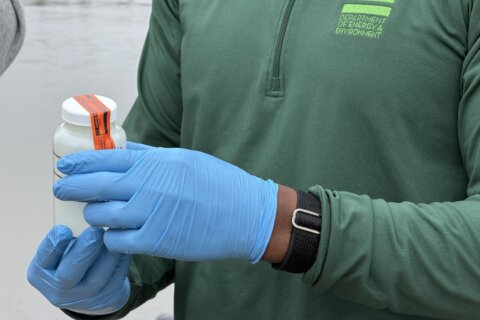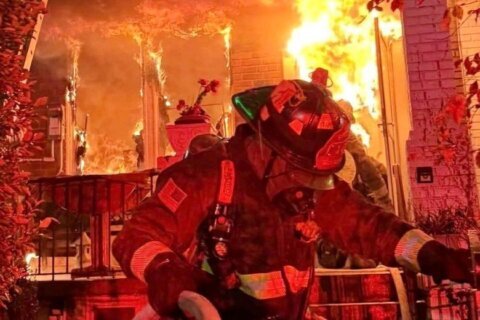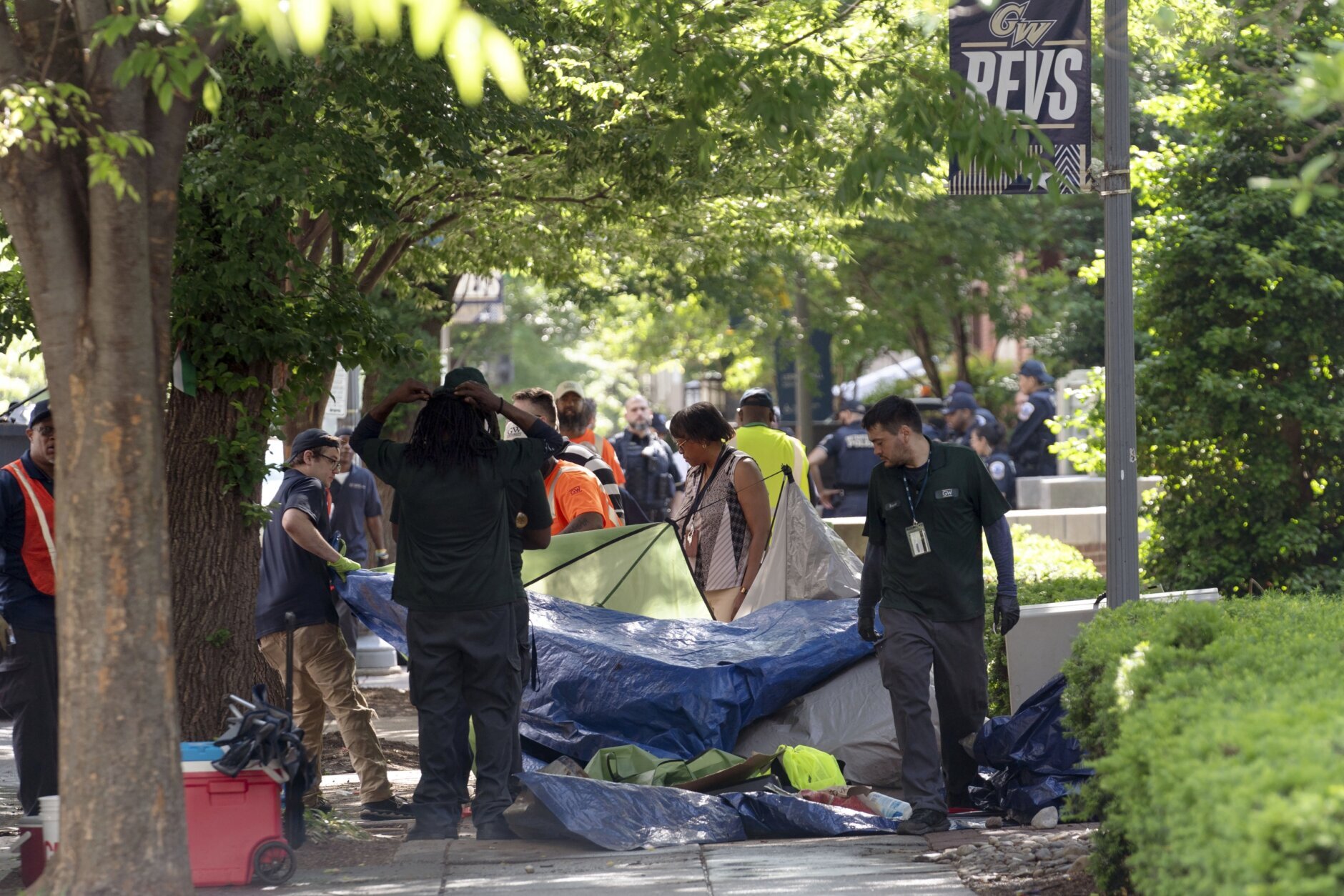
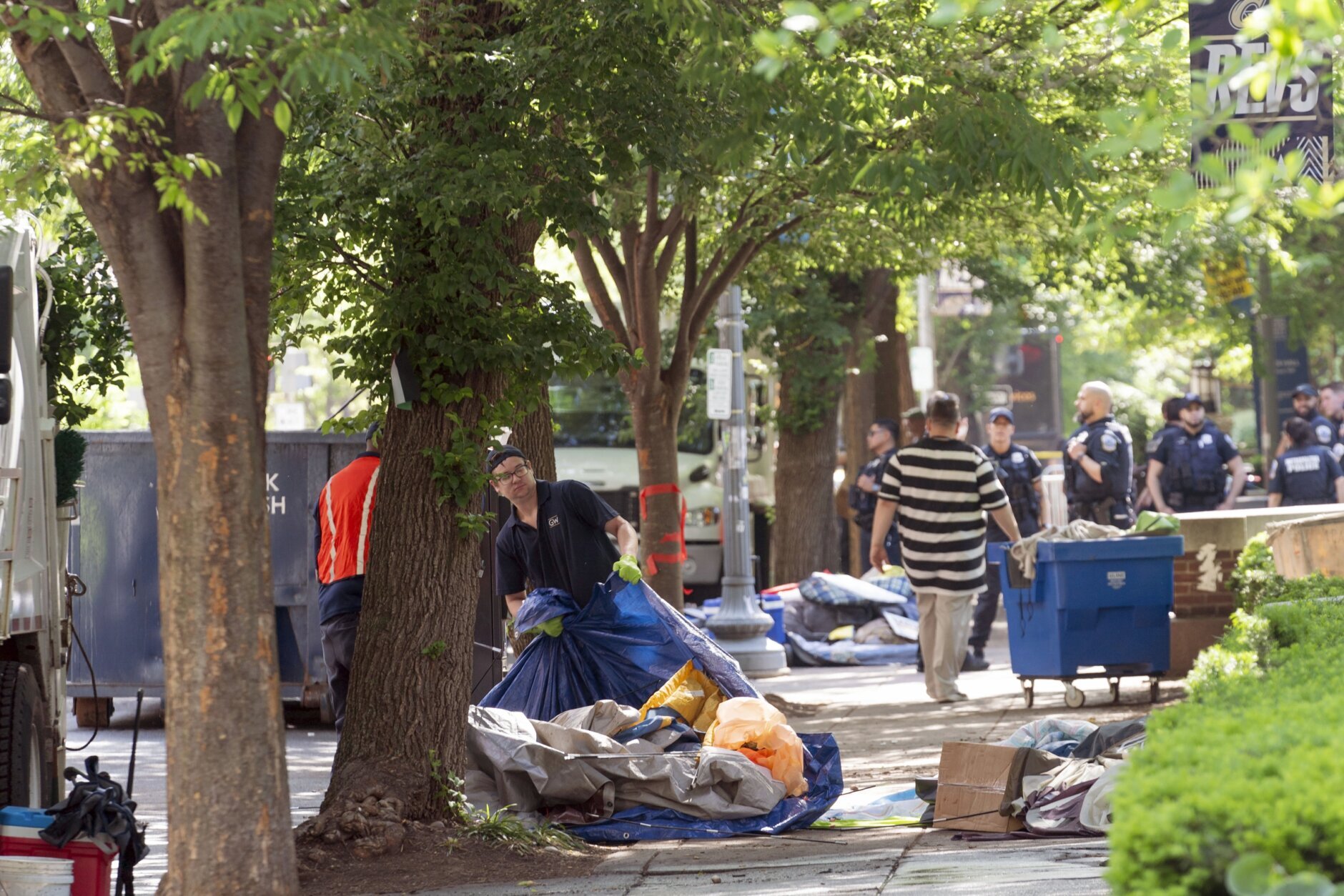
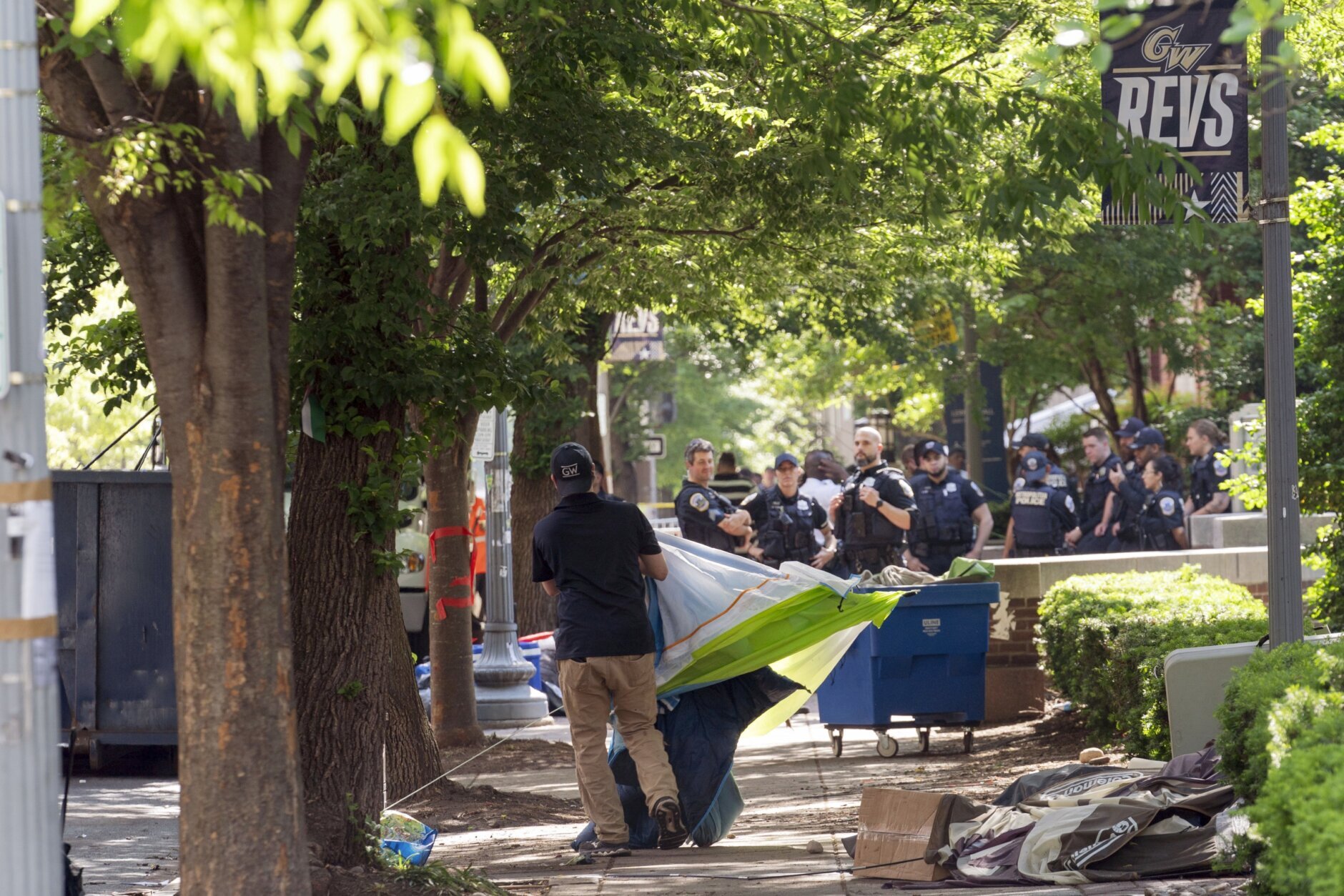
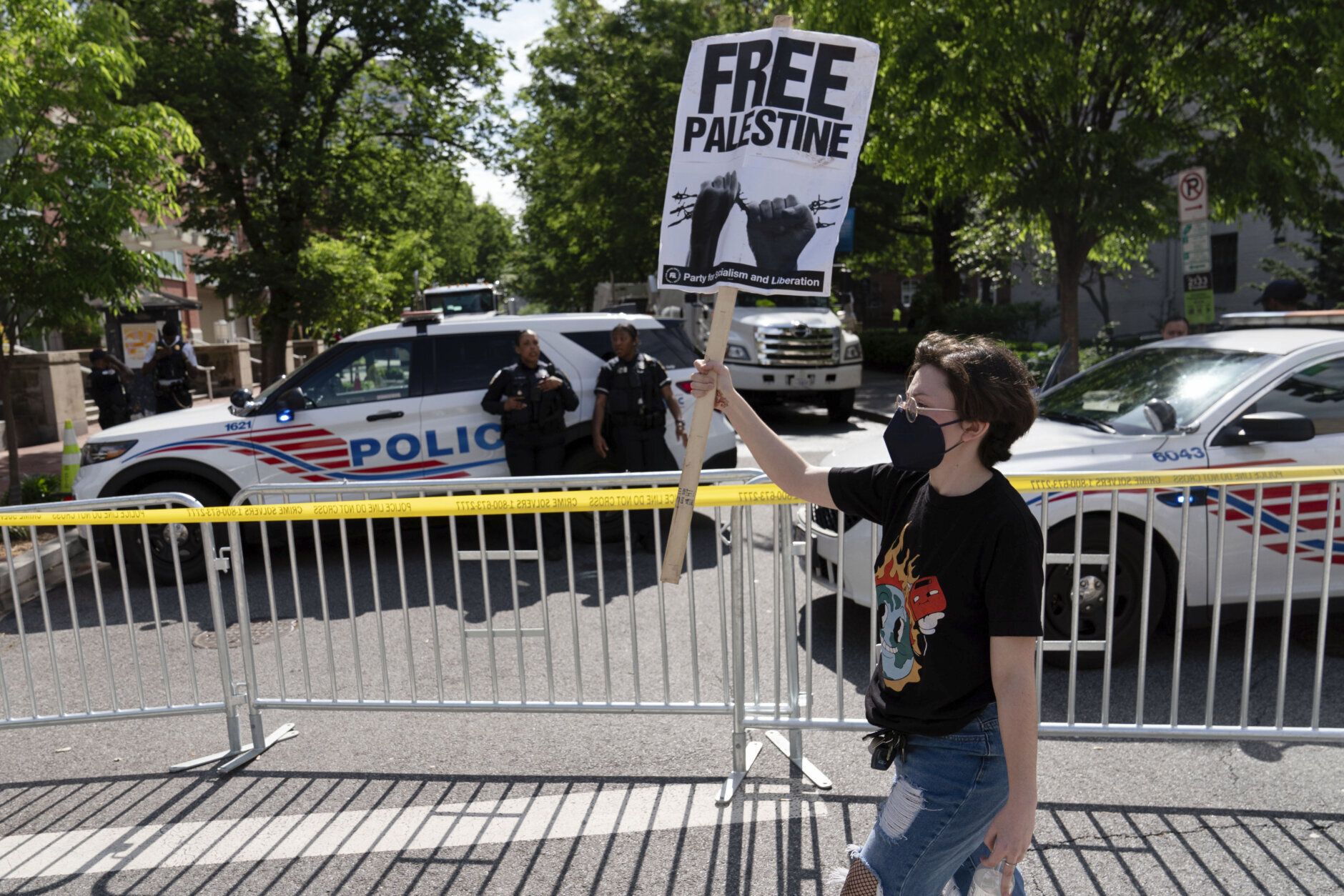
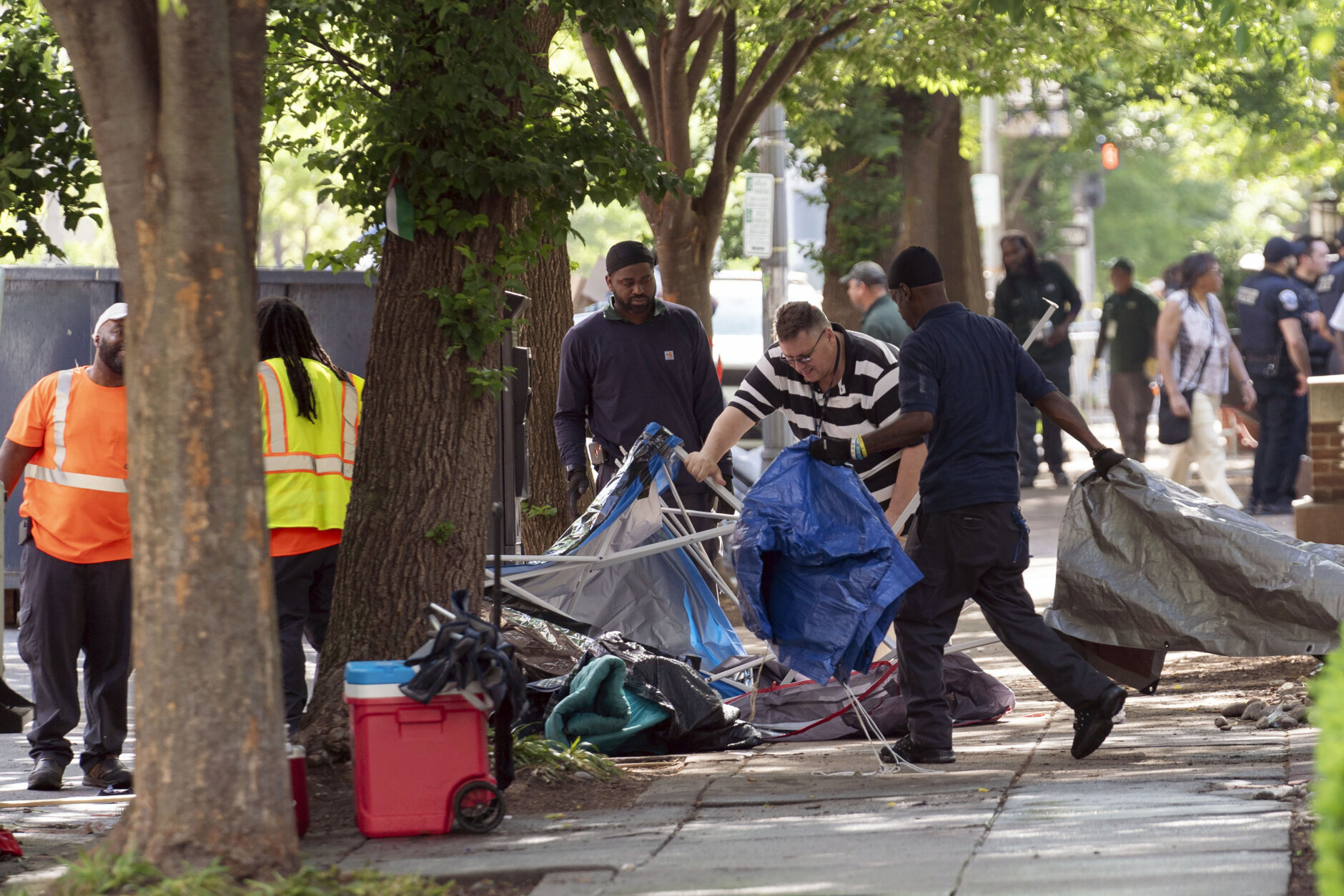
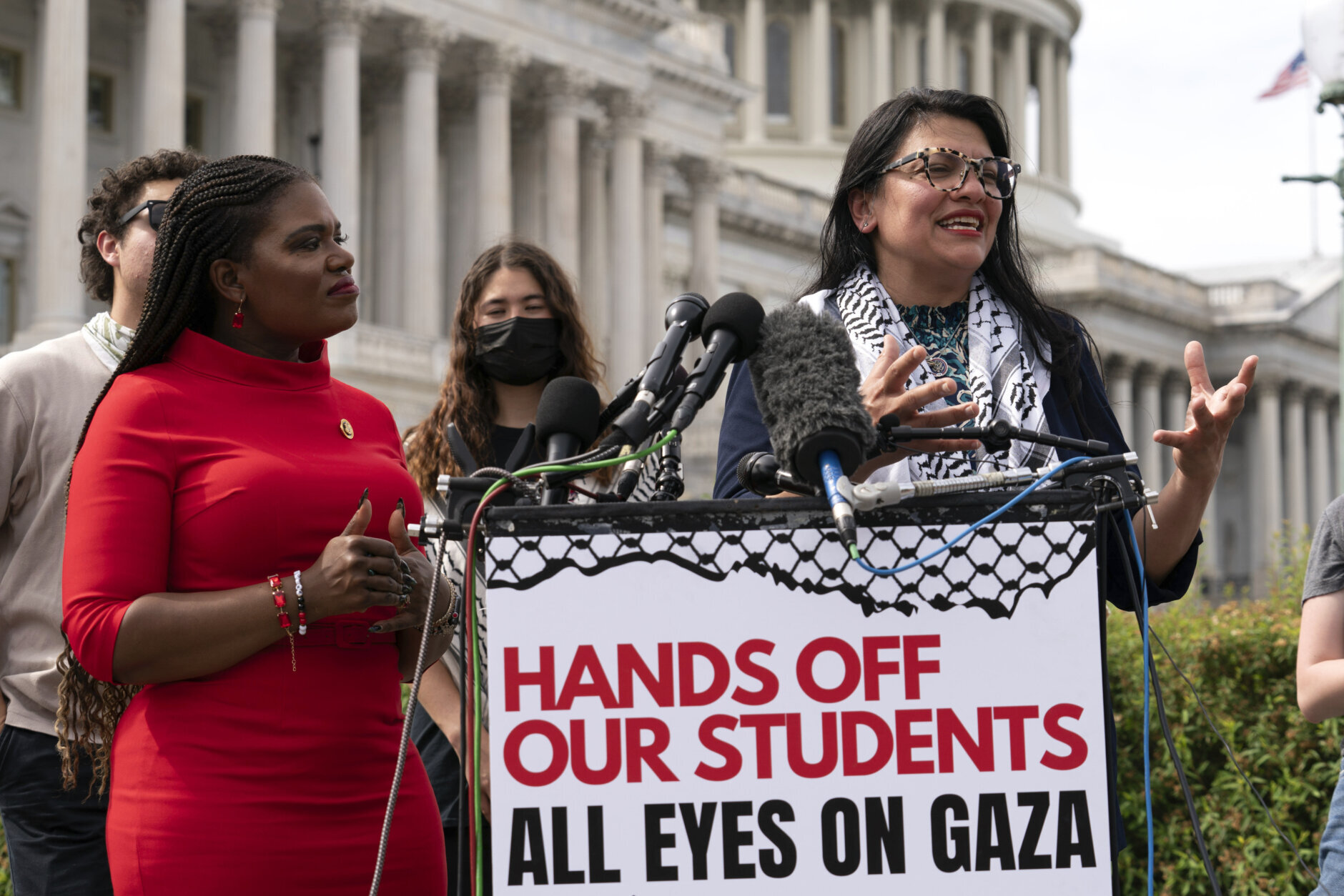
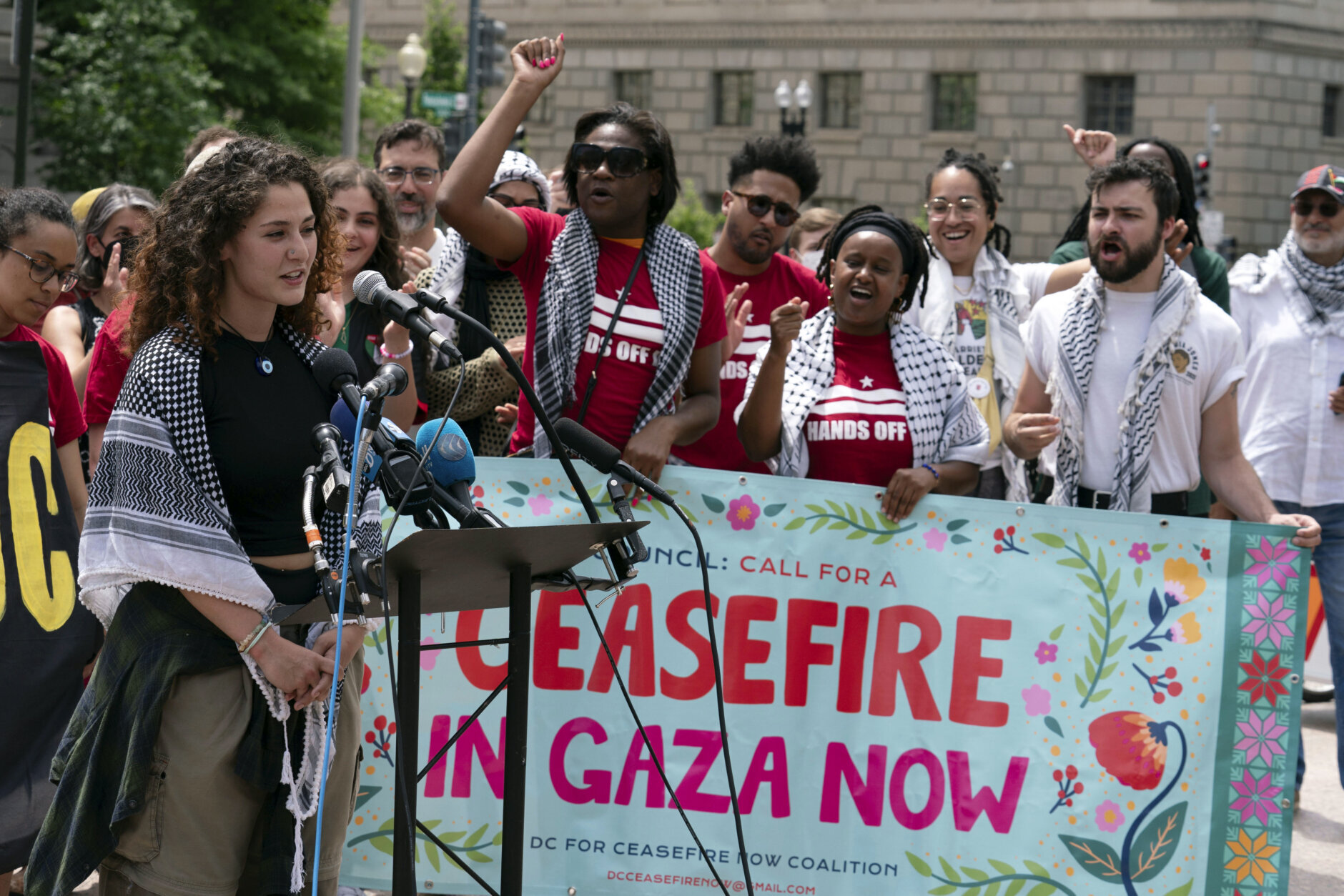
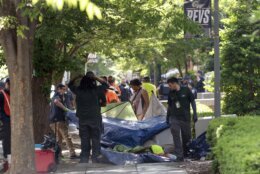
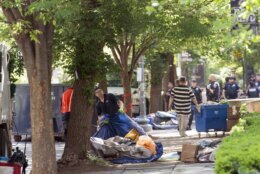
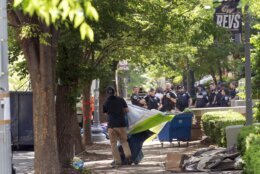
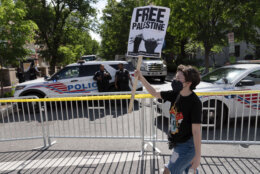
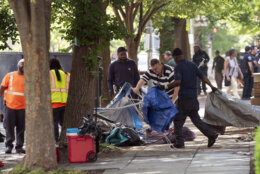
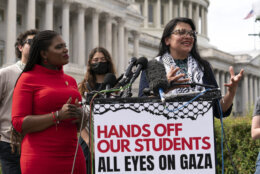
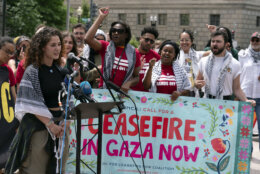
Listen live for the latest updates on The George Washington University protests.
D.C. police took down a pro-Palestinian encampment at The George Washington University early Wednesday morning and arrested 33 protesters, D.C. police Chief Pamela Smith announced during a news conference Wednesday.
Police told WTOP that officers began clearing University Yard around 3 a.m., after law enforcement officials gave multiple warnings to clear the encampment. Protesters who refused to leave the site were taken into custody.
DC’s reasoning behind clearing GW encampment
This video is no longer available.
During the news conference, D.C. Mayor Muriel Bowser and Smith said that clearing the encampment was essential for maintaining public safety in the District, and that city officials had been in communication with the campus administration as they planned the move.
“The District of Columbia and Metropolitan Police Department support individuals peacefully exercising their First Amendment rights. But as the chief of police, I need to be, I am always guided by public safety. This space has been no different,” Smith said. She acknowledged that the protests did begin “very peacefully.”
The police chief said there were many indicators that the protests were becoming more volatile, outlining intelligence that officers had been collecting over the past few days.
“This started last Thursday, when a GW campus police officer was pushed by protesters and an item was grabbed out of the police officers hand during the performance of her duties,” Smith said.
Officers reported that members of the pro-Palestinian protests assaulted counterprotesters, Smith said, adding that some counterprotesters were also “covertly in the encampment,” pretending to be part of the pro-Palestinian protest.
Smith said people that were not part of the GWU community were found inside a secure campus building and protesters from other schools were traveling to the university to join the encampment. Weapons were also being gathered by protesters, according to the police chief.
“All of this led to my discussion and conclusion that we needed to change our posture. I briefed Mayor Bowser on Monday and we began preparing for last night,” Smith said. “Our plan included giving warnings, multiple warnings, clear direction to people inside the encampment to disperse the area. We allowed protesters ample time to leave the area. In total, there were six dispersal announcements before our officers took action.”
Protesters that stayed in the encampment after those warnings were charged with unlawful entry, and many were also charged with assaulting police officers.
Overall, 33 protesters were arrested at the encampment and at the intersection of 20th Street and Pennsylvania Avenue, where Smith said police were met with additional demonstrators that refused to disperse.
Jeffery Carroll, Executive Assistant Chief of Police, said that officers pepper-sprayed protesters three times in response to the assault on police officers, but that no one was seriously injured.
“[There were] no serious injuries to any of our officers. We do not determine at this time that there were any serious injuries to any anyone within the public. Obviously, we did deploy some pepper spray. But other than that, we don’t have any additional information on injuries or citation,” Carroll said.
Bowser concluded the meeting by responding to a reporter asking whether D.C. police were treating pro-Israel protests differently than pro-Palestinian ones.
“MPD’s response to First Amendment demonstration is apolitical, it is without regard to one side or the other. And it’s focused on public safety,” Bowser said.
Bowser and Smith were scheduled to speak about the city’s response to the protests at a hearing with the House Committee on Oversight and Accountability on Wednesday morning. Chairman James Comer, a Kentucky Republican, canceled the meeting and praised D.C. police for clearing out “antisemitic and unlawful protesters” on school campus.
“I had a good conversation with Mayor Bowser. I thanked her for finally clearing the trespassers off the GW campus,” Comer said. “I am pleased that the potential Oversight hearing led to swift action by Mayor Bowser and MPD Chief Smith. We will continue to hold D.C. officials accountable to ensure our nation’s capital is safe for all.”
Overnight clearing
This video is no longer available.
Yasin Shami, a protest organizer who was on the university’s yard when police broke up the encampment, said dozens of police in riot gear “stormed in from all corners.” He said officers pulled students from their tents and pushed them all into a large group before dividing the crowd.
“Some of the students were brave enough to stay despite the dispersal orders having been booked,” Shami said. “They came in, fully geared up to brutalize some students, which is exactly what happened.”
Two student protesters that were in the encampment early Wednesday morning said demonstrators who did not want to be arrested and left after the first verbal warning were pushed over a block away from the yard, so they couldn’t “get a glimpse of inside.”
Earlier Wednesday, D.C. police said they had been trying to “de-escalate tensions” at the encampment since protests began on April 25.
About five police vans were filled with arrested protesters by 5 a.m.
After setting up a bike barricade around the block of University Yard in the early morning, police started setting up metal barricades around 7 a.m.
“We go around the block to try to get a better glimpse, over on the streets that are further away from campus. We assumed that’s where they’d be taking the students that they arrested,” one student said. “They were waiting for us … 15 police officers kind of came out of nowhere with bikes to create a makeshift barricade.”
The students said a group of some 50 protesters started to amass on the street, linking arms so police couldn’t arrest anyone.
“We weren’t trying to push them or anything. We were just standing in place and then immediately they started grabbing their bikes and stabbing us with their bike handles — pushing, shoving people. And then it got very hectic,” the student said.
“I got sprayed with pepper spray,” one student said. “I ended up just kind of waddling backward, completely blind because my eyes were stinging.”
The students said they were pushed out of the intersection and their group of injured protesters disbanded.
Several hours before the clearing, protesters carrying signs that read “Free Palestine” and “Hands off Rafah,” marched to GWU President Ellen Granberg’s home on campus. Police were called to maintain the crowd. No arrests were made at the time.

PHOTOS: See the GW University pro-Palestinian protest evolve
Calls for no police action before closing encampment
The encampment clearing comes as protests at the university reached the two-week mark.
Last week, more than 20 former and current D.C. Advisory Neighborhood Commissioners signed a letter calling on the mayor to pledge that she will not call on city police to take action against student protesters.
In the April 29 letter, the commissioners said the “protesters’ First Amendment rights should be protected,” and D.C. police should not engage in any actions to clear them out of the encampment on George Washington University’s campus, and should instead let them leave on their own terms.
“I think that Washingtonians recognize that (protesting) is part of what makes D.C. special. It’s in our strong culture of folks using their First Amendment rights and standing up for what they believe in,” said Ward 3 Commissioner Hayden Gise, who was a signatory on the letter. “Don’t suspend students for protesting and don’t arrest them for being peaceful.”
Republican lawmakers from around the country visited the encampment last week and had a very different message, calling for D.C. police to take action or even send in the National Guard to clear demonstrators out.
Tensions have continued to ratchet up in standoffs with protesters on campuses across the U.S. — and increasingly, in Europe — nearly three weeks into a movement launched by a protest at Columbia University in New York.
Some colleges cracked down immediately on protests against the Israel-Hamas war. Among those that have tolerated the tent encampments, some universities have begun to lose patience and call in police over concerns about disruptions to campus life, safety and the involvement of nonstudents.
Since April 18, just over 2,600 people have been arrested on 50 campuses, according to figures based on reporting by The Associated Press and statements from universities and law enforcement agencies.
The Associated Press and WTOP’s Luke Lukert, Andrew Alsbrooks and Ciara Wells contributed to this report.
Get breaking news and daily headlines delivered to your email inbox by signing up here.
© 2024 WTOP. All Rights Reserved. This website is not intended for users located within the European Economic Area.


